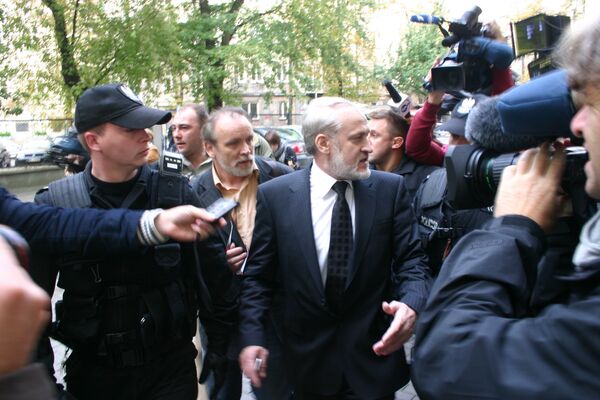Chechen separatist leader Akhmed Zakayev walked out of a Polish court on Friday evening several hours after he was arrested at Russia's request.
Polish prosecutors asked the Warsaw District Court to extend Zakayev's arrest for 40 days but their petition was rejected. The conditions of Zakayev's release have not been yet made public.
Zakayev told reporters after the court session that he was free to travel in Poland and would go to the town of Pultusk, around 60 km (40 miles) north of the capital, to address the World Chechen Congress that is being held there.
"Poland is one of my favorite countries, which I will always visit. It is yet another country where I feel free," Zakayev said.
"I do not intend to conduct an anti-Russian campaign. Poland has chosen to re-establish normal relations with Russia, its great neighbor, but we must also make sure that Russia also becomes a normal state," he added.
Zakayev was detained in Warsaw earlier in the day and taken to a district prosecutor's office. He said he was on his way to the prosecutor's office to present materials relating to Russia's charges against him.
Moscow wants Zakayev to return to Russia to face terrorism, murder, kidnapping and other charges and prosecutors said following his arrest that they were preparing an extradition request.
Zakayev has been on the international wanted list since 2001 but he was granted political asylum by Britain in 2003. Russia has repeatedly asked Britain to extradite him, but the request has invariably been refused.
Zakayev, who took part in the first Chechen War and led attacks on federal forces, denied in 2009 claims by Russia's security services that he was "attempting to revive the militant movement" in the region.
He also said he was ready for talks with Chechen head Ramzan Kadyrov, who subsequently said he would welcome Zakayev's return to Chechnya.
Zakayev, who has spoken out against Islamic radicalism in the North Caucasus, was "sentenced to death" by Chechnya's most wanted militant leader, Doku Umarov, in 2007.
"He practices a democratic religion, calls for secularism and prefers laws established by people to the law of Allah," the statement said.
WARSAW, September 18 (RIA Novosti)


